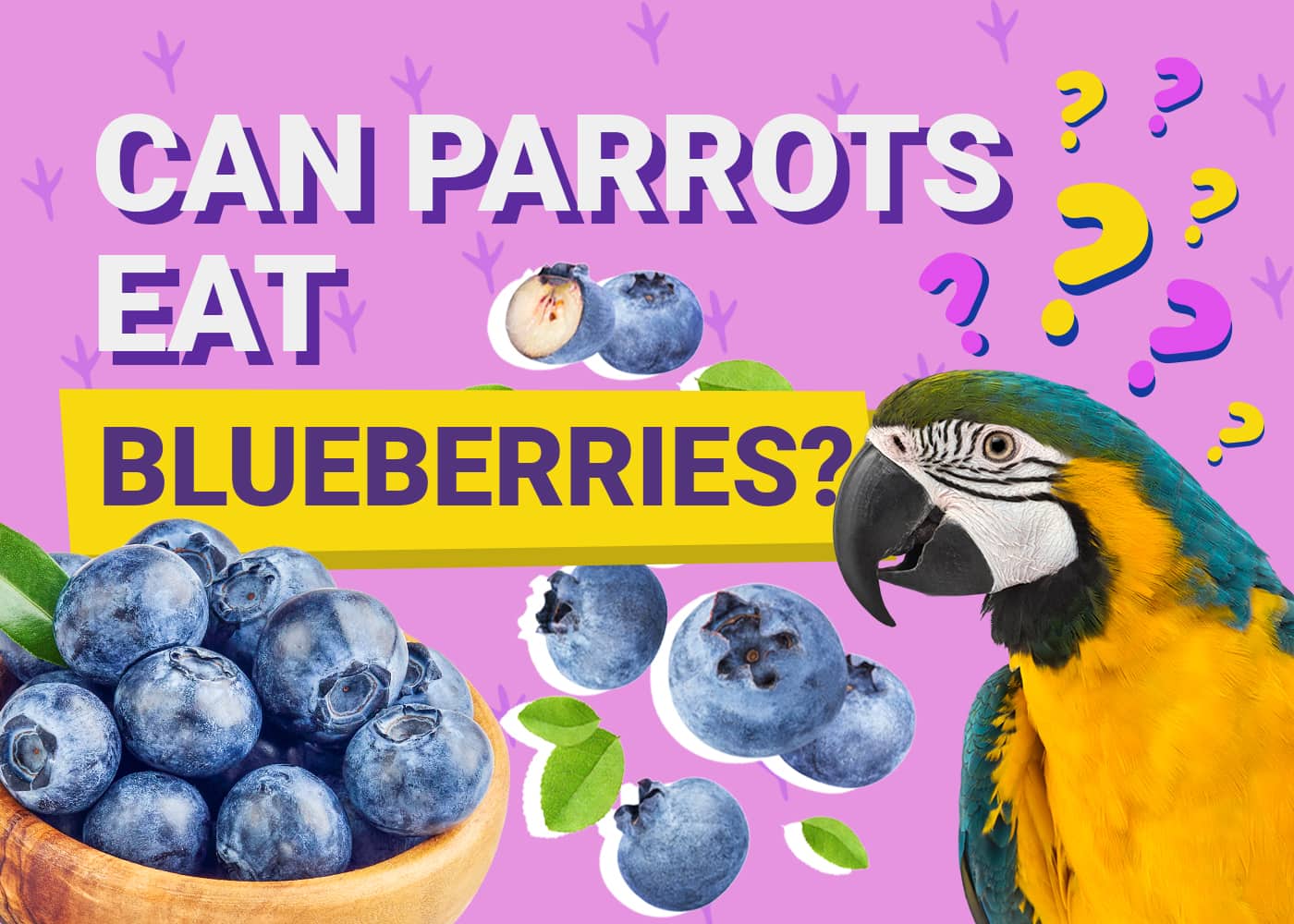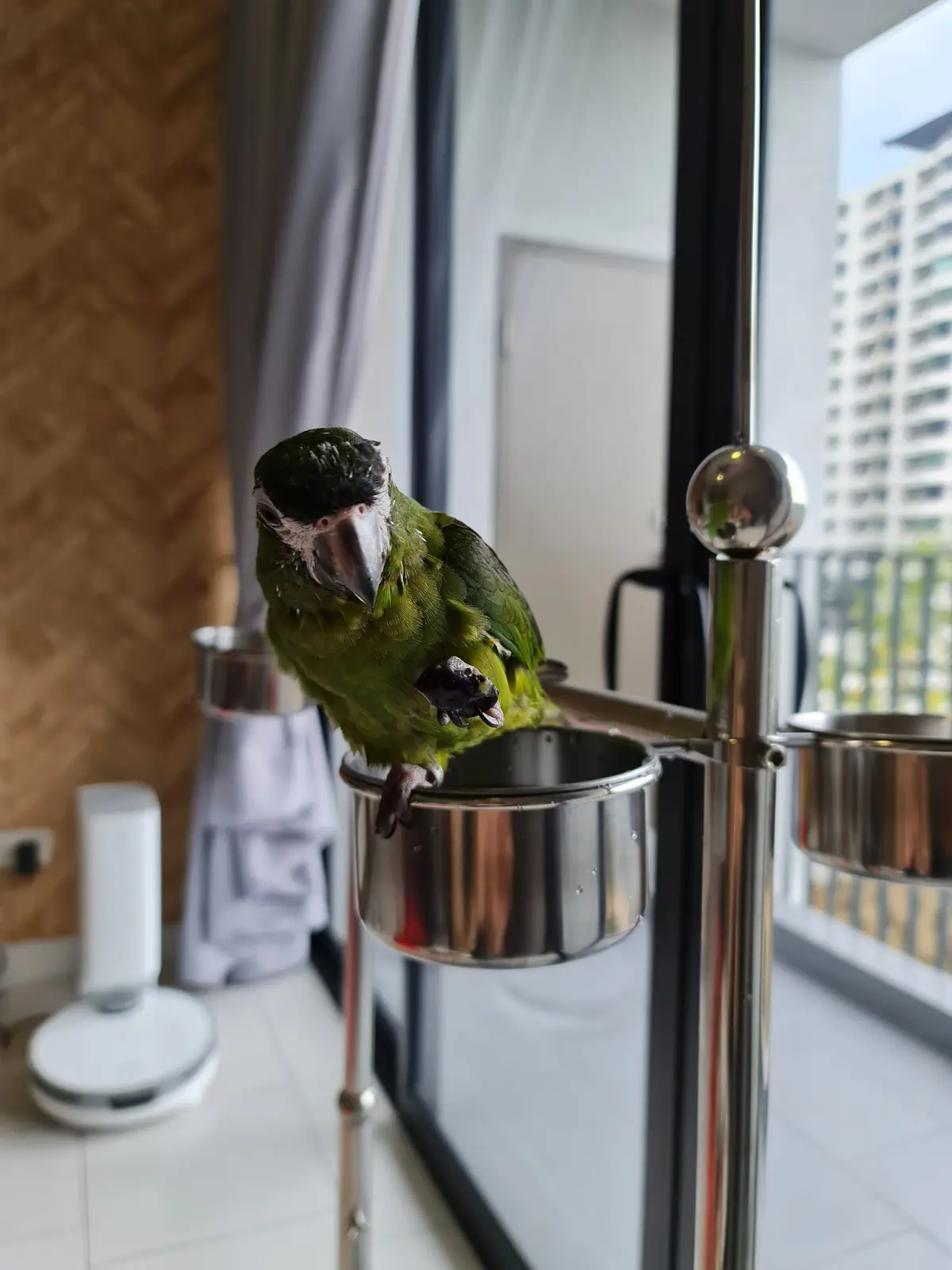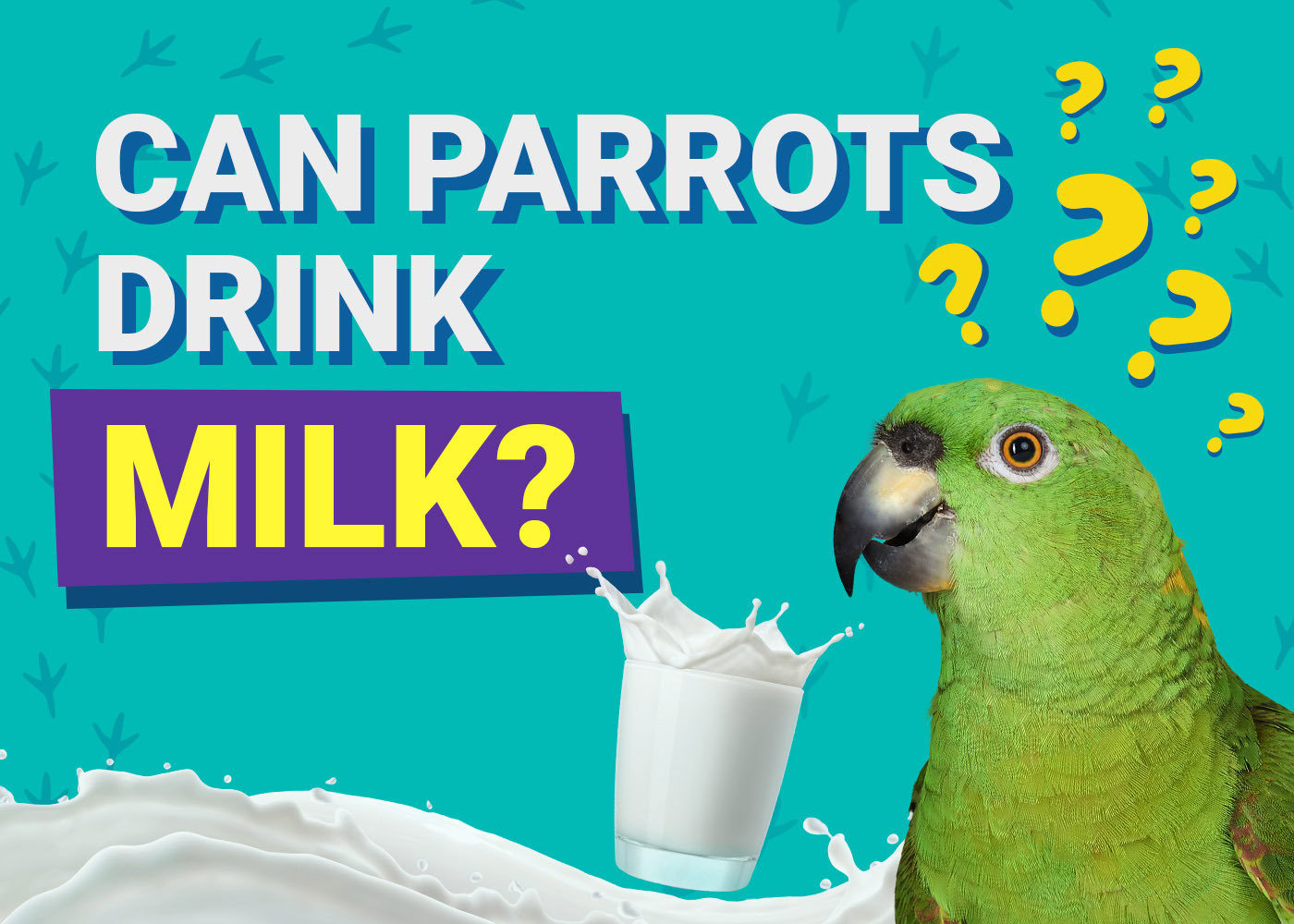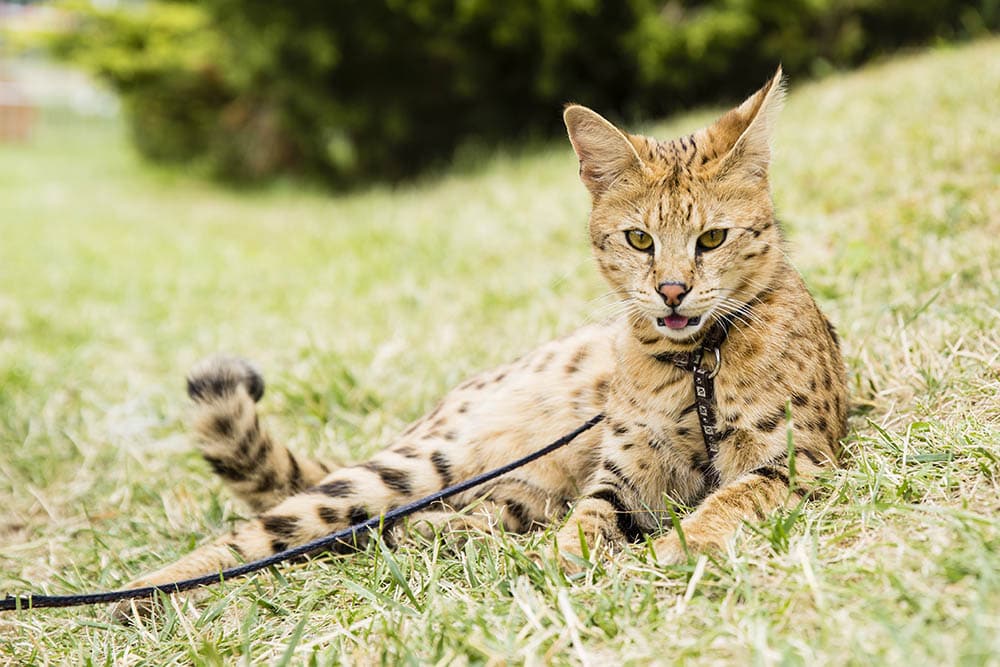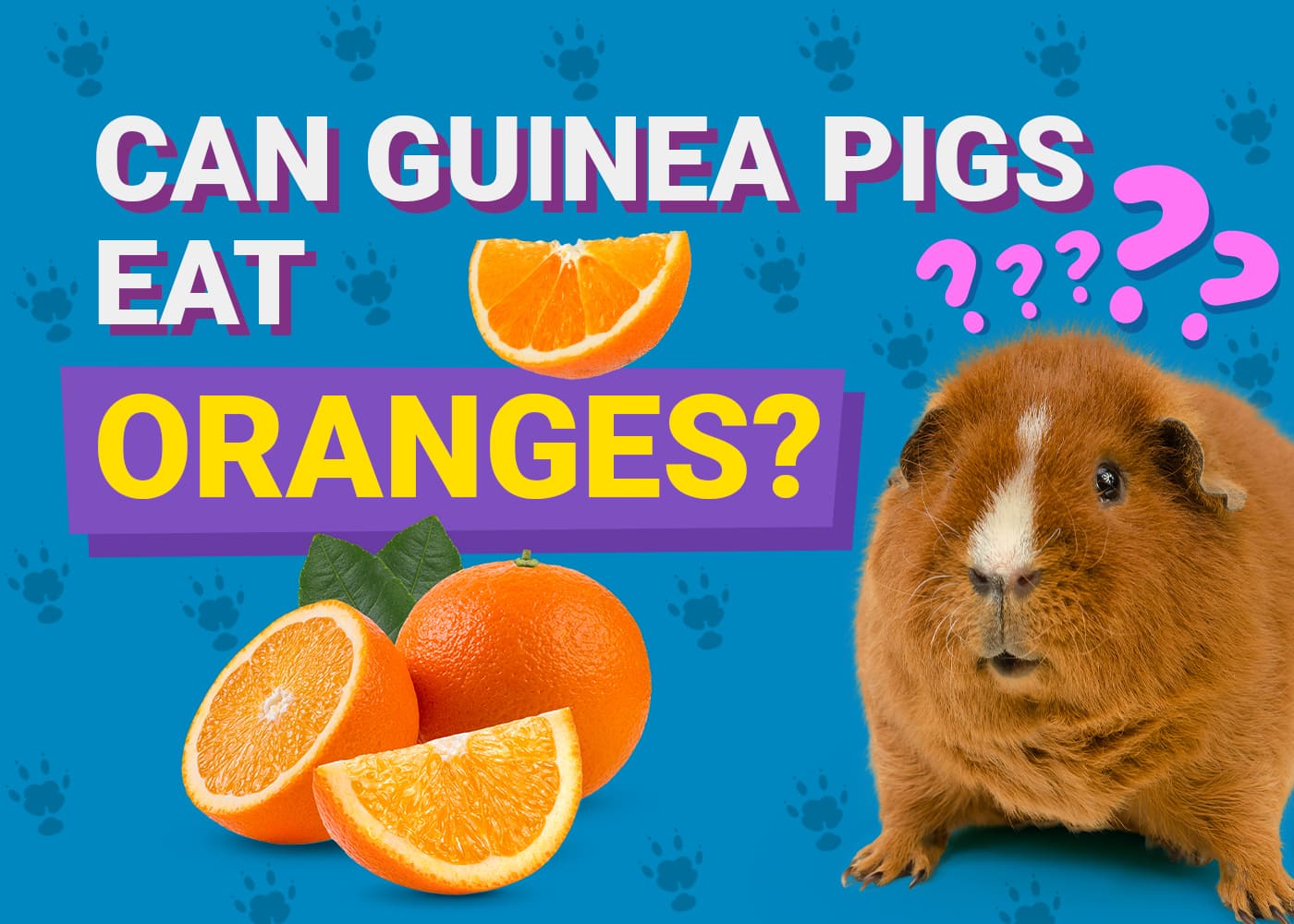Click to Skip Ahead
Understanding the foods your parrot can eat is very important for keeping them healthy and ensuring that you are providing them with the best quality diet. We know that adding fresh fruits and vegetables to a parrot’s diet is essential. One staple in a human household is blueberries. So, can parrots eat blueberries? The answer is, yes! Parrots can eat blueberries, in fact, they love them.
We do have to keep in mind that pet parrots cannot be fed the same diet as their wild counterparts. In the wild, parrots spend their days foraging. They are so active that they expend much more energy than a pet parrot. For this reason, a pet parrot’s diet should contain no more than 10%–20% fruits, seeds, and nuts due to high sugar and fat content.

Benefits of Blueberries
Not only do parrots love blueberries, but there are also some great benefits to feeding them to your parrot. They are one of the healthiest fruits you can offer your parrot because they are high in nutrients and lower in calories and sugar than most other fruits.
Blueberries contain a wide variety of vitamins, minerals, and phytonutrients and are a great source of fiber. They should always be served with a variety of other fresh fruits, as well as vegetables, seeds, and pellet-based bird food.
A Parrot’s Diet
Parrots require a varied diet so that they get the proper nutrition for their overall health and well-being. Current recommendations from avian veterinarians state that pellets should make up anywhere from 50%–70% of a parrot’s diet. Fresh foods should make up the remaining 30%–50% of their diet with fruits, nuts, and seeds only taking up 10%–20% of that.
The fruits, nuts, and seeds are fed more sparingly due to the high sugar and fat content. As previously mentioned, pet parrots do not require as many natural sugars or fat content as wild parrots.
The best pellets to feed your parrots are those that do not contain added sugars or any food dyes, as they can harm your parrot’s health and even shorten their lifespan.
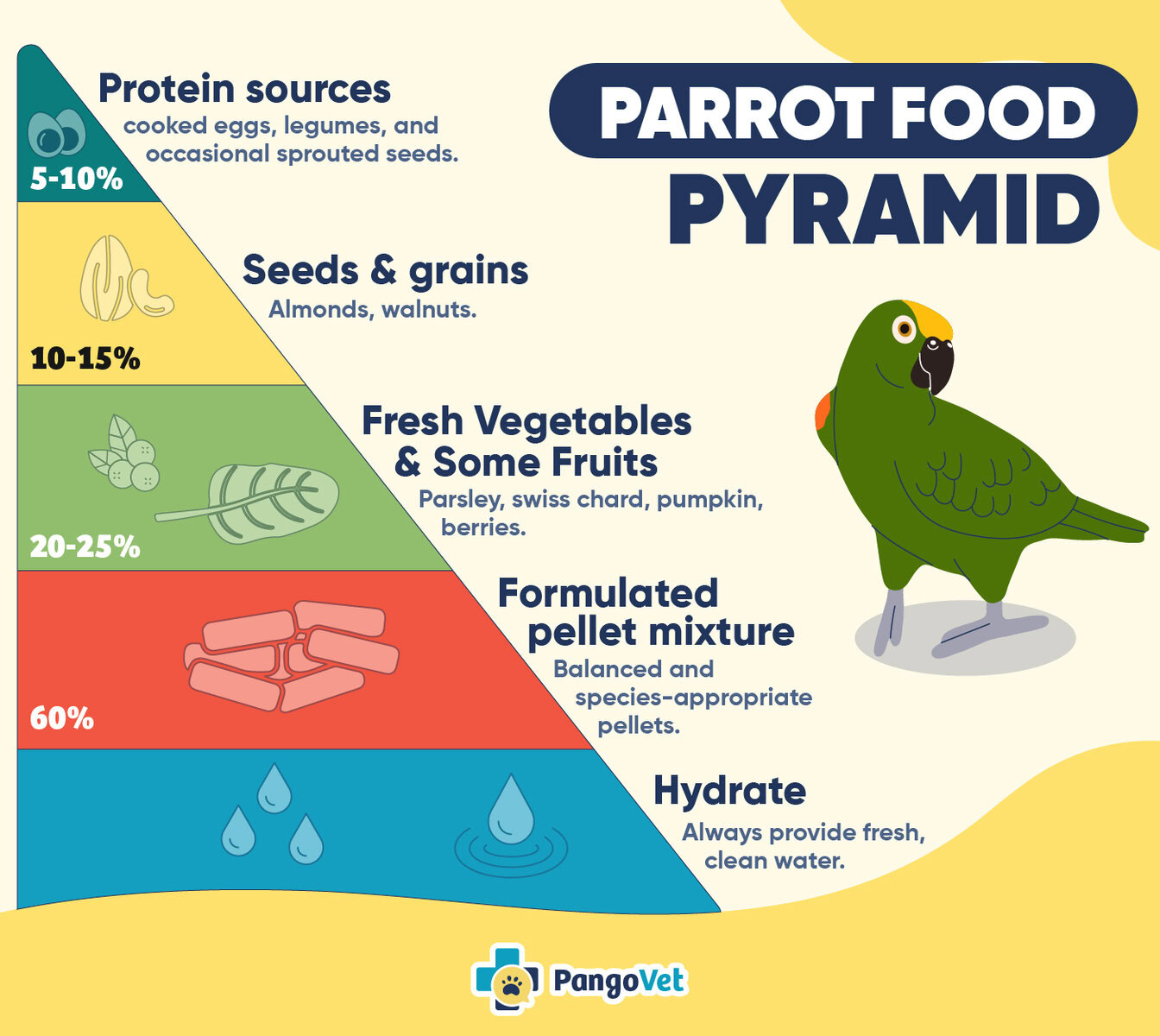

What Foods Should I Avoid Feeding My Parrot?
There are several foods you will want to avoid offering your parrot. Some foods that are fit for human consumption aren’t necessarily good for parrots. You run a risk of potentially feeding your parrot a toxic substance, so it’s best to be well-educated on what can do them harm.
You will also want to avoid foods that contain caffeine or are high in salt, fat, or sugar. Parrots should never consume foods that contain any preservatives or dyes.
1. Alcohol
Alcohol poisoning can be fatal to your parrot. It depresses the organ function in birds and can lead to death if too much is consumed.
2. Avocado
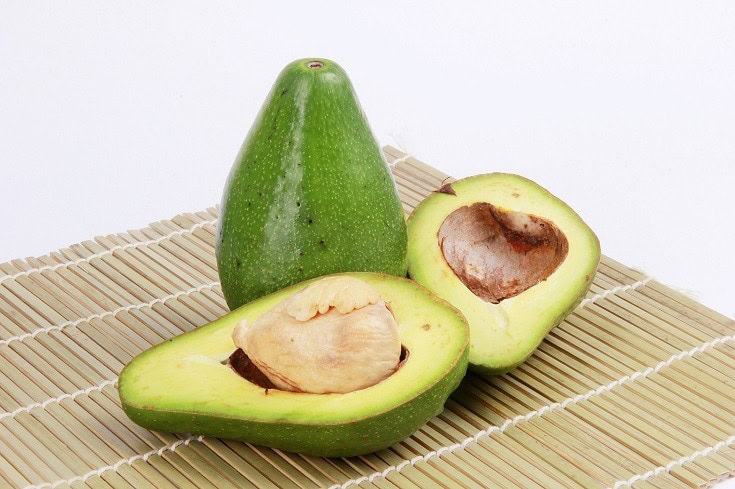
Avocados contain persin, a natural compound that is toxic for birds. The extent of toxicity depends on the avocado’s precise strain and your parrot’s species. Fundamentally though, all parts of avocados are toxic for parrots, and as such, it is best to have your birds avoid avocados (and guacamole) entirely.
3. Candy
Birds might find sweets hard to resist but thankfully you’re in control of their diet. Candy contains way too much sugar and empty calories and should be avoided entirely for the sake of your parrot’s health.
4. Caffeine
Caffeine can cause cardiac distress in birds. They will experience increased heartbeat, arrhythmia, hyperactivity, and cardiac arrest if they consume caffeine in large quantities.
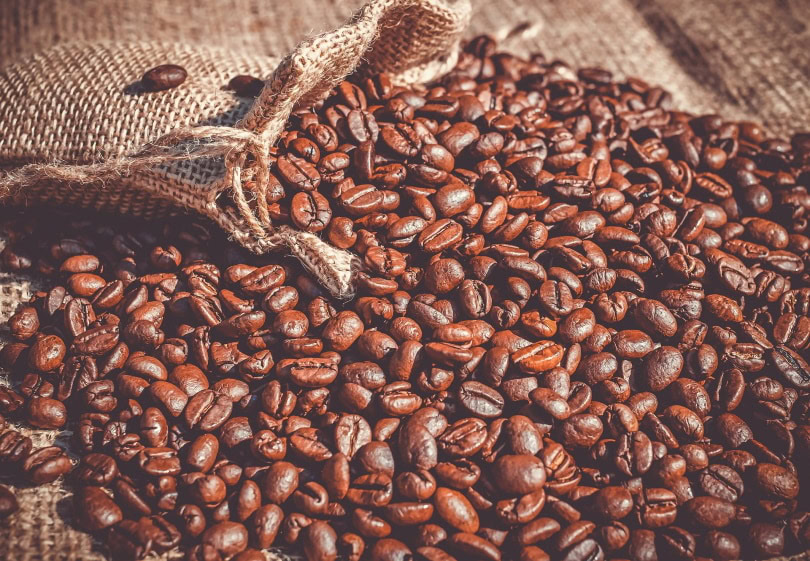
5. Cassava (Tapioca)
Tapioca is not toxic but is made from cassava starch, which is a type of flour. Tapioca is pure carbohydrates and will cause weight gain.
6. Chocolate or Cocoa Powder
Chocolate, cocoa powder, and anything made from cocoa contains a substance called theobromine. Theobromine is toxic and can be very harmful or fatal to your parrot. It will have a disastrous effect on your bird’s digestive system.
It will first cause vomiting and diarrhea but will progress to the bird’s central nervous system and result in seizures and eventually death. You must keep anything chocolate far from your parrot.
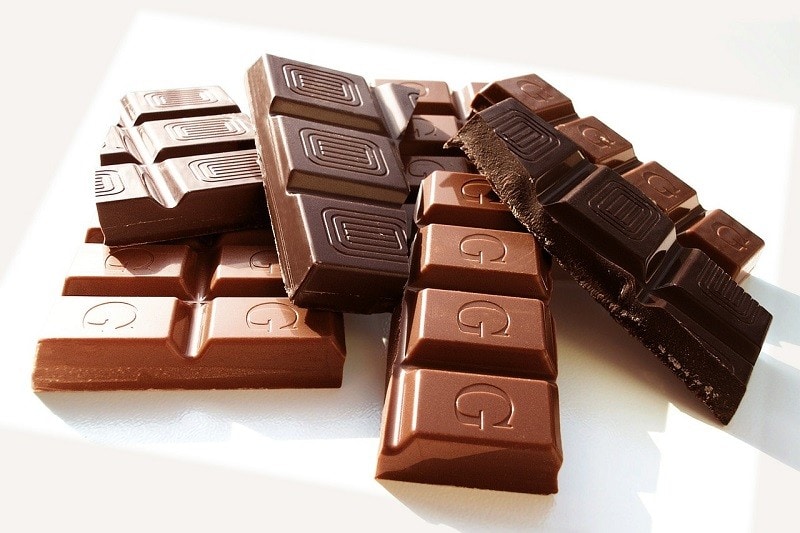
7. Dairy
Due to the high-fat content in dairy products and the fact that parrots do not require high-fat content in their diets, it is best to steer clear of dairy. Any fats will be provided by the nuts and seeds in their diet.
8. Fruit Pits and Seeds
Seeds and pits of certain fruits such as apples, peaches, pears, oranges, and many more contain trace amounts of cyanide. While the fruit can be perfectly healthy for your parrot, you will need to ensure the seeds and pits are not available to them. You will also want to either cut off the skins to avoid any potential pesticides.
9. Mushrooms
Mushrooms are a fungus that can cause digestive issues in parrots. Certain varieties of mushrooms can even induce liver failure in some animals.
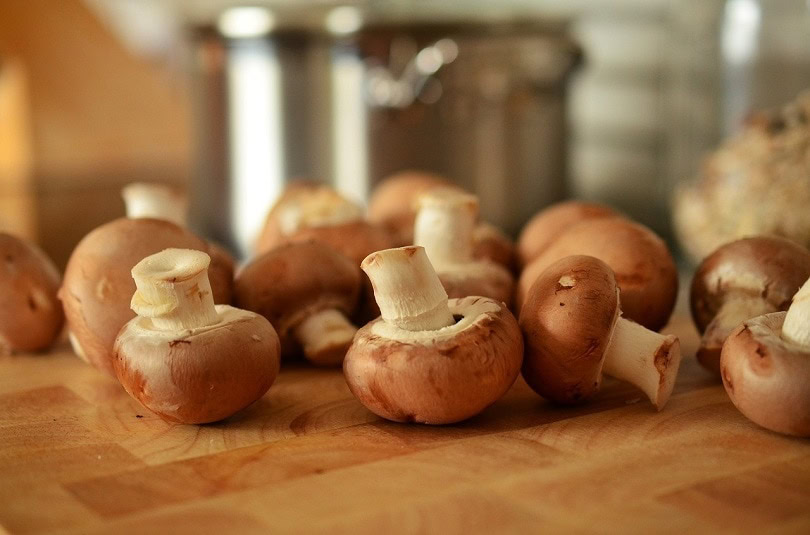
10. Onions
Raw onions can cause vomiting, diarrhea, and other digestive issues in parrots. Long-term consumption can also cause anemia. Onions are best avoided since there are many other safe vegetables available.
11. Raw Beans
Cooked beans are a well-liked treat for birds, but some raw dry beans are very toxic. Just make sure any beans you serve are well cooked.
12. Salt
As with humans, too much salt is not good for your parrot’s health. Excessive amounts of sodium in their diet can lead to a lot of health issues such as excessive thirst, dehydration, kidney dysfunction, and even death. Make sure salt intake is very minimal.
13. Tomato Leaves
Tomatoes can make a great treat for your bird. However, the stems, vines, and leaves are highly toxic, so you need to make sure they are completely detached and the tomato is washed before feeding them to your parrot.

Conclusion
We’ve learned that blueberries make for a great, healthy addition to your parrot’s diet. Not only do they provide benefits, but your parrot will love them. Just watch out for the mess! We’ve also learned about a parrot’s overall diet and what foods are best avoided.
Hopefully, this leaves you with a better understanding of the dietary needs of pet parrots.
Related Reads:
Featured Image Credit: kimkyungok, Pixabay
